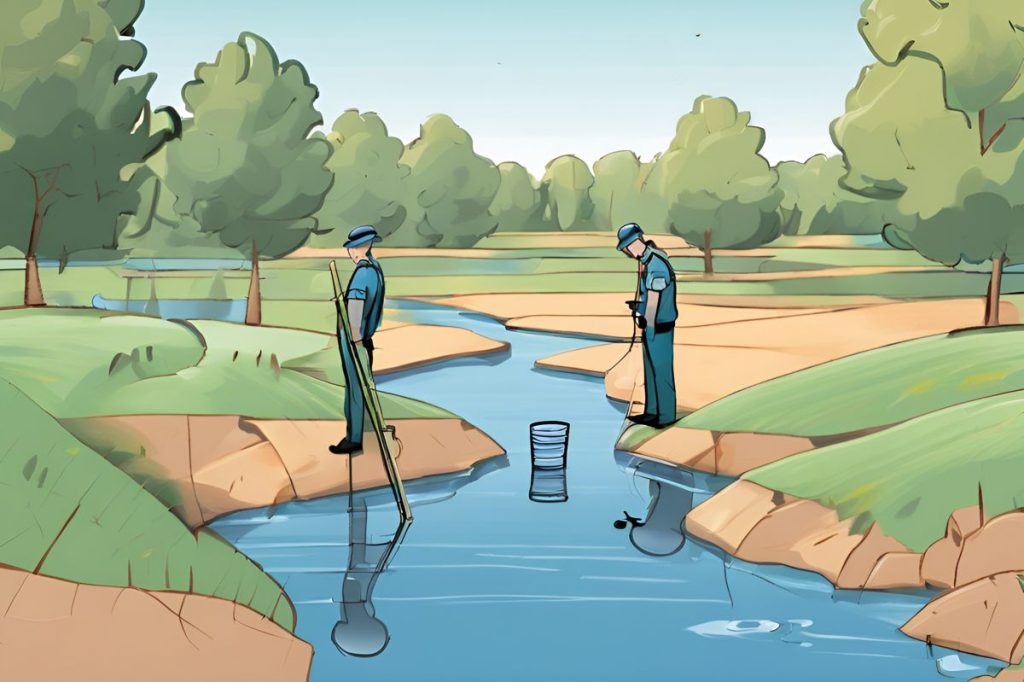The waste seepage at Achna Dam led to immediate actions including water testing, halting irrigation usage, and enhancing waste tank supervision. Ongoing monitoring and investigations aim to mitigate risks and improve waste management practices for the future, underscoring the interconnectedness of environmental health, public safety, and sustainable farming practices.
What immediate actions were taken in response to the waste seepage at Achna Dam?
In response to the waste seepage at Achna Dam, authorities implemented immediate laboratory testing of water, halted dam water usage for irrigation, and established strict supervisory protocols for the waste tanks. Additionally, ongoing monitoring and investigations aim to assess risks and inform remediation and future improved waste management strategies.
Immediate Response to Pollution Incident
The serene surroundings of Achna dam recently became the center of an environmental scare as local authorities addressed the public’s concern regarding potential water contamination. On Monday, reports surfaced about liquid waste leakage into the dam, prompting the community leader of Achna, Nikos Vassilas, to highlight the risk of pollution to the dam and nearby crop fields. The urgency of the situation led to calls for immediate laboratory testing of both dam and groundwater while advocating for a more robust liquid waste management strategy for the nearby livestock farms, which are predominantly cattle-based.
In reaction to these events, the agriculture ministry has taken a vigilant stance, assuring the public of ongoing monitoring and the implementation of preventive steps. As a precautionary measure, the use of water from Achna dam for irrigation purposes has been temporarily halted to prevent any potential adverse effects on public health and the environment.
Seasonal Factors and Health Risk Assessment
Theodoulos Mesimeris, the director of the environment department, appeared on a morning show to provide insights into the situation. He suggested that the current season played a role in mitigating the crisis, as the demand for water from the dam is not at its peak during this period. Mesimeris stressed the importance of the forthcoming laboratory results, which will reveal the scope of the contamination and guide further action.
Natural filtration processes are believed to have reduced the potential hazard as the waste percolated through the soil over a two-kilometer stretch before reaching the dam. Despite the reassuring tones, Mesimeris acknowledged the need for improved waste management practices, noting that the issue becomes more pressing in winter. During colder months, reduced evaporation rates and increased rainfall can lead to the accumulation of liquid waste, putting further strain on the holding tanks and raising the risk of overflow.
Enhanced Monitoring and Future Safeguards
Further to the ministry’s assurances, there’s an ongoing detailed survey of the agricultural parcels that could be affected by the leakage. The water from Achna dam is also being tested for contaminants, and results will dictate the course of necessary remedial measures. Meanwhile, a strict supervisory protocol has been established around the implicated tank, ensuring prompt responses to any signs of structural compromise.
The Green Party has voiced concerns over the wider implications of the incident. The party leader, Giorgos Perdikis, underscored the environmental impact of cow farming—an industry already under scrutiny for its contributions to the climate crisis. The conditions at local facilities have also sparked discussions on animal welfare and labor standards, especially for foreign workers, indicating the incident may be a catalyst for broader environmental and social policy reforms.
Implications and Actions Moving Forward
The incident at Achna dam serves as a stark reminder of the delicate balance between agricultural practices and environmental stewardship. With the authorities’ proactive measures and ongoing investigations, there is hope for not only a swift resolution to the immediate threat but also a more sustainable approach to waste management in agriculture. The situation underscores the interconnectivity of environmental health, public safety, and sustainable farming practices, and the need for continued vigilance and adaptation in our management of natural resources.
What immediate actions were taken in response to the waste seepage at Achna Dam?
In response to the waste seepage at Achna Dam, authorities implemented immediate laboratory testing of water, halted dam water usage for irrigation, and established strict supervisory protocols for the waste tanks. Additionally, ongoing monitoring and investigations aim to assess risks and inform remediation and future improved waste management strategies.
What are the seasonal factors influencing the current situation at Achna Dam?
The current season, with reduced water demand, has helped mitigate the crisis at Achna Dam. However, winter poses a greater risk due to reduced evaporation rates and increased rainfall, potentially leading to liquid waste accumulation and overflow from holding tanks.
How is the government enhancing monitoring and implementing future safeguards at Achna Dam?
The government is conducting a detailed survey of agricultural parcels that could be impacted by the waste leakage. Water from the dam is being tested for contaminants, and a strict supervisory protocol has been established to detect any structural compromise of the waste tanks promptly.
What broader implications does the incident at Achna Dam have on environmental and social policies?
The incident at Achna Dam highlights the need for improved waste management practices in agriculture and raises concerns about the environmental impact of cow farming. It has sparked discussions on animal welfare, labor standards, and the need for broader environmental and social policy reforms to ensure sustainable farming practices and environmental stewardship.

